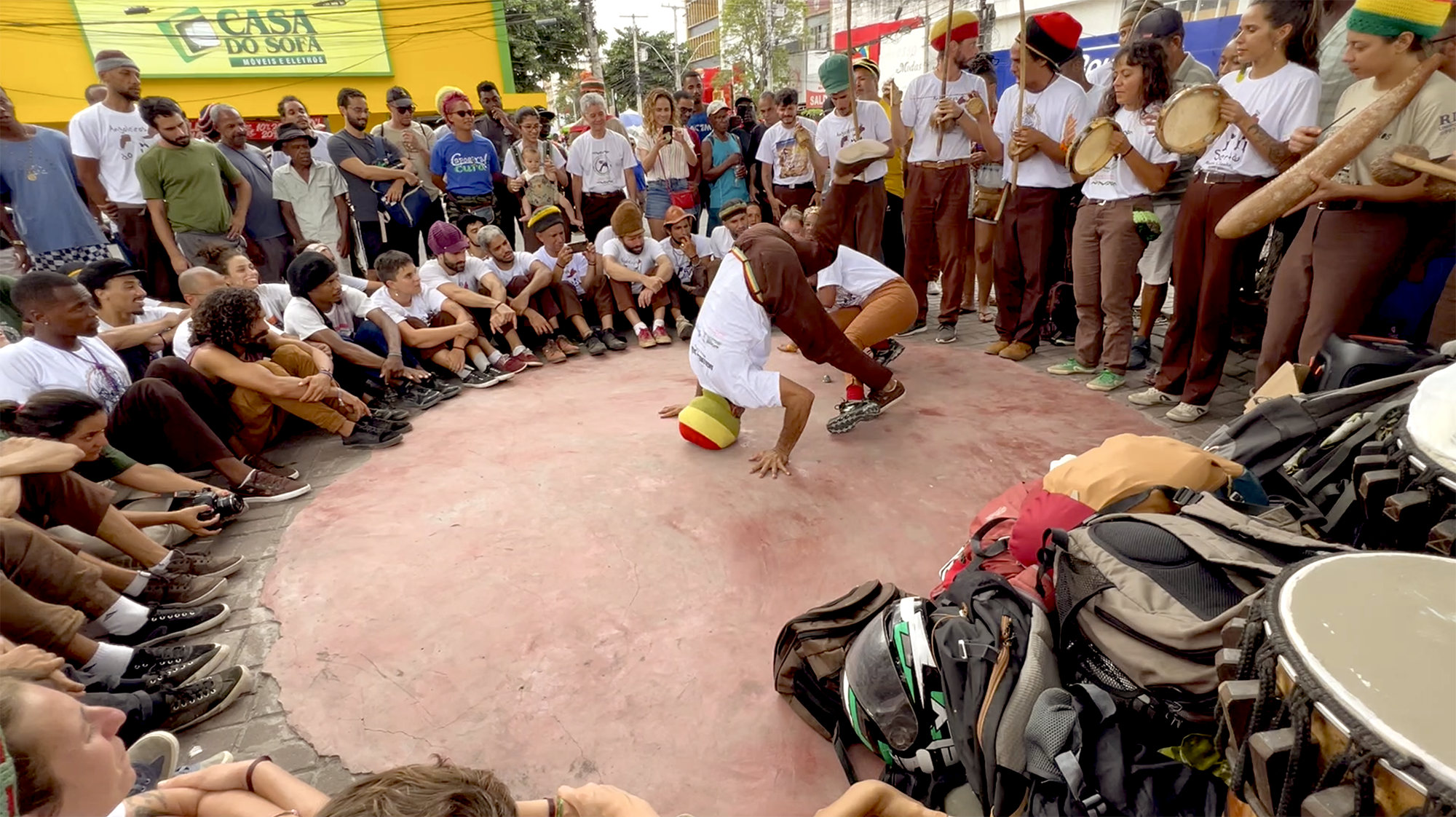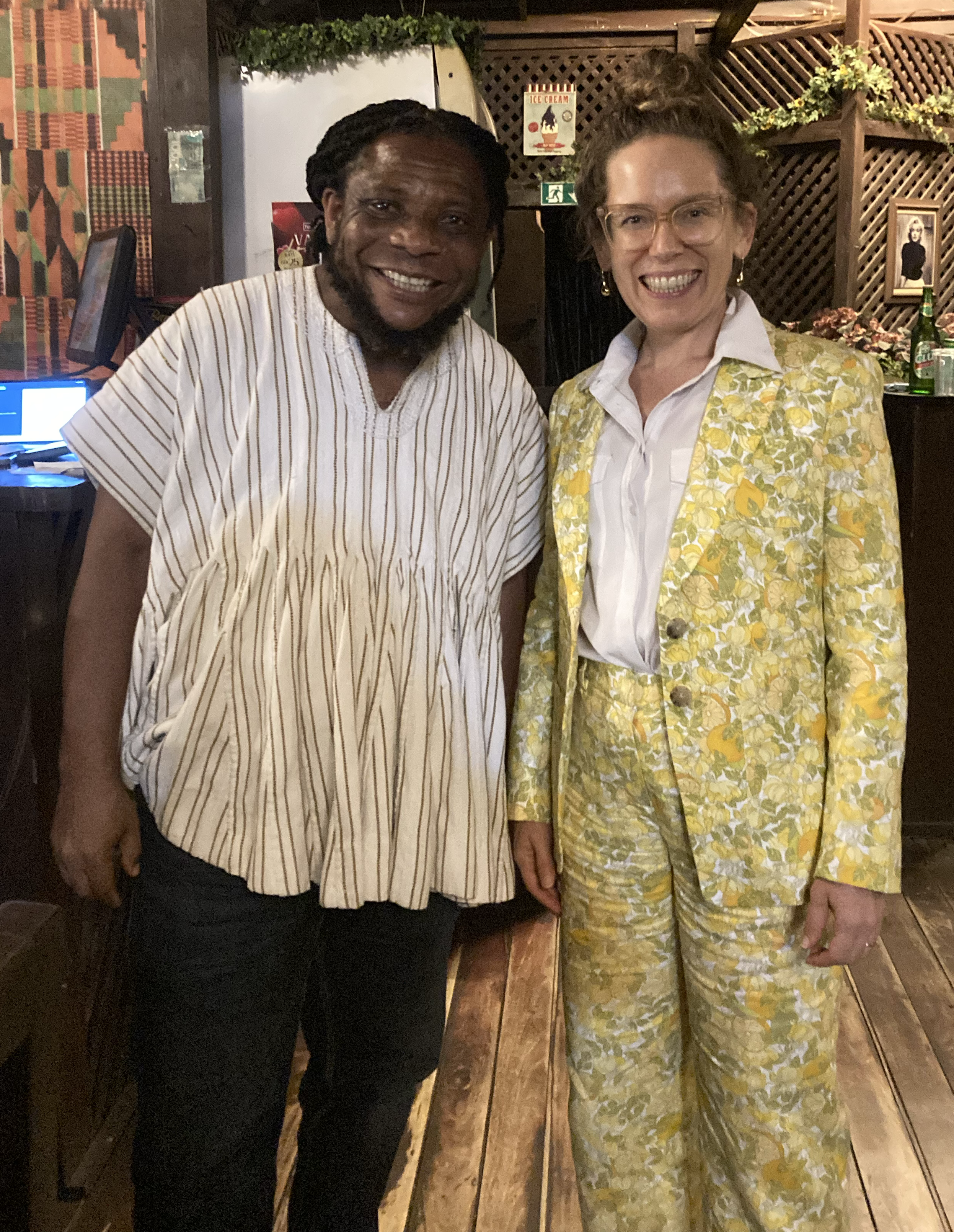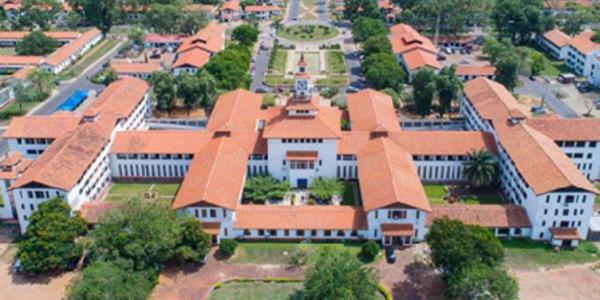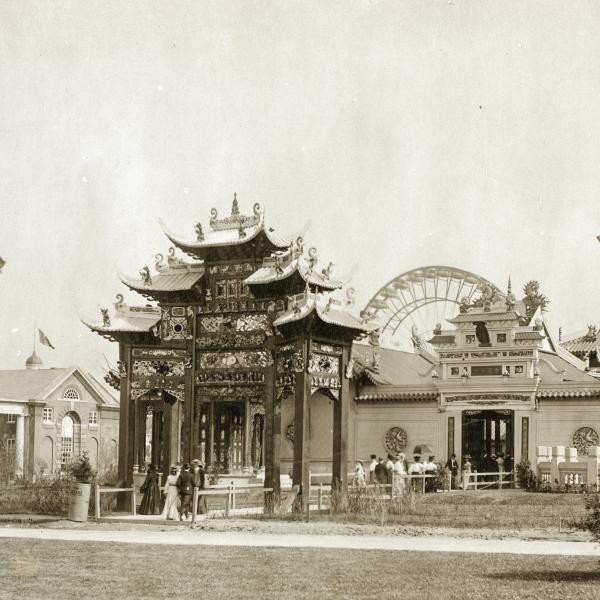Ethnomusicologist Esther Viola Kurtz shares her experience with the residential fellowship program that sends WashU scholars to one of three African universities.

For the second year in a row, Washington University sent a faculty member to the University of Ghana through the BECHS-Africa Fellowship program. With funding from the Mellon Foundation, and in partnership with the University of Ghana, American University in Cairo and Stellenbosch University (South Africa), the transnational BECHS-Africa program is aimed at enhancing research capacity for early career scholars in the humanities by supporting a residential fellowship exchange. Esther Viola Kurtz, assistant professor of ethnomusicology in the Department of Music and a scholar of the Afro-Brazilian musical fight-dance-game called capoeira Angola, spent the fall 2023 semester in residence with the University of Ghana’s Department of Dance Studies.
WashU’s Center for the Humanities has hosted five BECHS visiting scholars from partner institutions since its launch — Robyn Berghoff (Stellenbosch University, fall 2023), Zameka Sijadu (Stellenbosch University, fall 2022), Austin Dziwornu Ablo and Mariama Zaami (both from the University of Ghana, spring 2022) and Dorothy Pokua Agyepong (University of Ghana, spring 2020).
Kurtz is the second outbound WashU faculty member participate in the fellowship exchange program. Below, we ask her about her research project and her thoughts on her fellowship experience.

Tell us about the projects you worked on during your fellowship.
For the first two months of my residency in the Department of Dance Studies at the University of Ghana, Legon, I worked on an article related to my first book project on the Afro-Brazilian music-movement practice capoeira Angola, but which will not appear in the book itself. The article takes as its basis the common understanding among practitioners that capoeira is a microcosm of society and considers how players carry the energies and knowledge generated in the practice into their lives.
Specifically, I focus on call and response — the mechanisms whereby sound summons sound and movement, movement calls for sounds, and bodies call and respond to one another — and how these calls and responses resonate beyond moments of musical and bodily interplay. I argue that call and response is not only a musical trope but also an ethical practice, and therefore the musical-bodily calls of capoeira summon practitioners to assume long-term responsibilities. Doing so, they enter ethical relationships with one another and the broader Black community of backland Bahia.
During the second half of the fellowship, I turned my attention to final preparations for the international research symposium I co-convened with my mentor at the Department of Dance Studies, Kwashie Kuwor, PhD. The hybrid symposium, titled “Interrelations: African/Diasporic Music, Dance, and Collaboration,” sought to contribute to conversations around how to better integrate music and dance studies. The interconnections of music and dance in African and African diasporic forms have long been recognized, but music and dance studies remain largely siloed. This division partitions the senses and further marginalizes African/diasporic practices and scholars. To address these issues, the symposium convened 12 scholars, based in Africa, the diaspora, Europe and North America who work on the interrelations of music/sound and dance/movement from African and African diasporic perspectives. Dr. Kuwor and I hope to develop this collaboration further in an edited volume centering diverse African/diasporic knowledges cultivated in Black expressive forms.
In what ways did the fellowship facilitate your work?
In addition to providing invaluable time to focus on my writing, being in a new environment was exhilarating and inspiring. I am particularly grateful to Dr. Kuwor, who generously agreed to mentor me during my fellowship, to Dr. Jennies Darko, head of the Department of Dance Studies, and to Professor Awo Mana Asiedu, dean of the School of Performing Arts. I also had many fruitful exchanges, formal and informal, with brilliant colleagues across the School of the Performing Arts (departments of dance studies, music and theatre arts) and learned about their important work. In my last full week in Ghana, I presented a paper at the Department of Dance Studies’ weekly research seminar, at which colleagues and students provided feedback and offered numerous thought-provoking questions. I am grateful!
What was the most unexpected thing about your fellowship?
There are several, and it’s hard to choose! One of the most rewarding aspects of the fellowship was being part of the Department of Dance Studies and being so close to the Departments of Music and Theatre Arts and the Institute of African Studies. The collegial atmosphere and the students’ creativity and enthusiasm make the School of Performing Arts a truly vibrant space.
I also had the extreme good fortune of overlapping with another BECHS fellow from Stellenbosch University, a scholar of genocide studies and postcolonial literature, Lauren van der Rede, PhD. I learned so much from our many stimulating conversations.
Headline image: Aerial view of the University of Ghana





